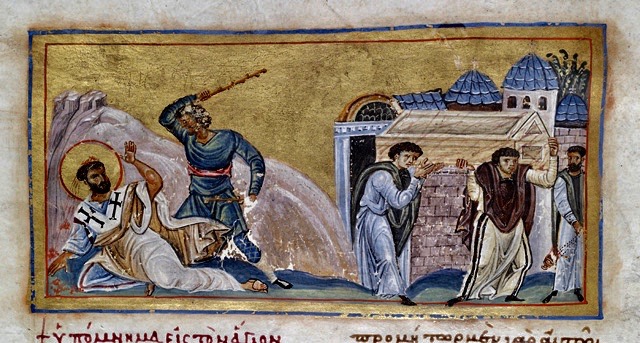Since 2002, about seventy dioceses in the United States have published the names of priests credibly accused of abusing minors. The U.S. Conference of Catholic Bishops is looking into developing national guidelines for releasing names of clerics facing “substantiated claims of abuse.”
Releasing the names of credibly accused priests may seem like a no-brainer, especially in current circumstances and given the current deficit of trust in the bishops’ handling of the crisis, but things aren’t quite as straightforward as they first appear.
Perhaps this biggest confusion arises from the term “credibly accused.” What constitutes a “credible accusation” is far from clear. At the minimum, it simply means an accusation that is “plausible” or “not impossible” – in other words, a very low threshold. As Christopher White (no relation) wrote last month in Crux, the definition of “credibly accused” varies widely from diocese to diocese.
Many dioceses interpret “credible” as including some sort of “substantiation” of the claim. (In the case of Archbishop McCarrick, for example, the Archdiocese of New York was careful to note the allegations against McCarrick were found to be “credible and substantiated.”)
When a credible (or “credible and substantiated”) allegation is made, the accused priest is supposed to be removed from ministry immediately. Diocesan review boards thus act as the rough equivalent of a grand jury, issuing an indictment if the case against the accused has merit.
But an indictment is not a conviction, and neither is an accusation, however credible.
Back in November, at the bishops’ meeting in Baltimore, Bishop Donald Trautman (emeritus of Erie, PA) rose to speak against plans to have third-party reporting systems for handling allegations against bishops. His objection was not to oversight of bishops by laity as such, but to the very idea that allegations against a bishop might be reported to the nuncio (and thus to Rome) without having first been proven.
“I think this proposal is very dangerous and unjust,” Trautman said. “It calls for the reporting to the apostolic nunciature accusations not investigated, not substantiated, not proven. That’s unjust.”
On its face, Trautman’s concern was not totally unwarranted, but his objection raised a few eyebrows, not least because he was protesting precisely the “unjust” conditions to which American priests have been subject since the implementation of the Dallas Charter in 2002.
Again, a priest does not have to be proven guilty in civil or canonical court before he is removed from ministry. All that is required is a credible allegation, which, again, is a very low threshold. How can a bishop object to such an arrangement while imposing the same on his priests?

Add to this the difficulties of proving – or disproving – allegations of sexual abuse, especially decades after the alleged abuse took place, and in many cases, a credible accusation may result in no legal resolution at all.
What, then, is a bishop to do with a priest against whom an allegation has been made, but who maintains his innocence and who has not been convicted of any canonical or civil crime? Return him to ministry? Keep him sidelined indefinitely?
Imagine a system by which a grand jury indictment is sufficient to establish guilt until proof of innocence can be provided and you’ll have some sense of how the Dallas Charter works for priests. No wonder bishops aren’t eager to put themselves in the same jeopardy.
These questions are complicated by the fact that, while a bishop may remove a priest from ministry, canonical appeals to Rome can result in a split decision where the bishop wants a priest out of ministry, but Rome sides with the priest. (One such case came to light during the Pennsylvania Grand Jury report. Then-Bishop of Pittsburgh Donald Wuerl removed an accused priest from ministry, Rome intervened and insisted the priest be reinstated, Wuerl refused.)
It has often been observed that procedures and commissions aren’t going to address the moral and spiritual roots of the crisis, which are legion. This is absolutely true. But reforming the canonical processes for handling abuse cases – to say nothing of providing needed resources and personnel for canonical cases – would go a long way towards making the handling of abuse cases more transparent and just. And transparency and justice are essential for restoring trust in the Church leadership.
Care for due process and the rule of law is as important within the Church as without. Due process not only protects the rights of the accused, it also ensures the reliability and trustworthiness of the judicial process as a whole. Without a clear, well-defined, and carefully executed canonical framework for handling abuse allegations, the Church is left with an ad hoc, almost haphazard, legal approach.
Irregular handling of cases leads to failures of justice, for both victims and the accused, and leaves the decisions of even the best bishops open to perpetual re-litigation in the court of public opinion, if not actual civil and criminal court.
The Attorney General of Illinois made headlines last month when she announced that the dioceses of her state had withheld the names of hundreds of accused priests. But the denunciation came without any corroborating information or evidence. Which names were withheld? By which bishops? And how many from which dioceses? The attorney general didn’t say.
As pressure from civil authorities increases, the importance of the Church having her canonical ducks in a row will increase exponentially. Pope Francis is not known to be a fan of “doctors of the law.” But as the global nature of the abuse crisis becomes more evident, it might just be the canon lawyers who can provide a framework for lasting reform. The clock is ticking.
*Image: The Martyrdom of St. Timothy (manuscript illumination) by an unknown Byzantine artist, c. 1050 [Walters Art Museum, Baltimore, MD]














